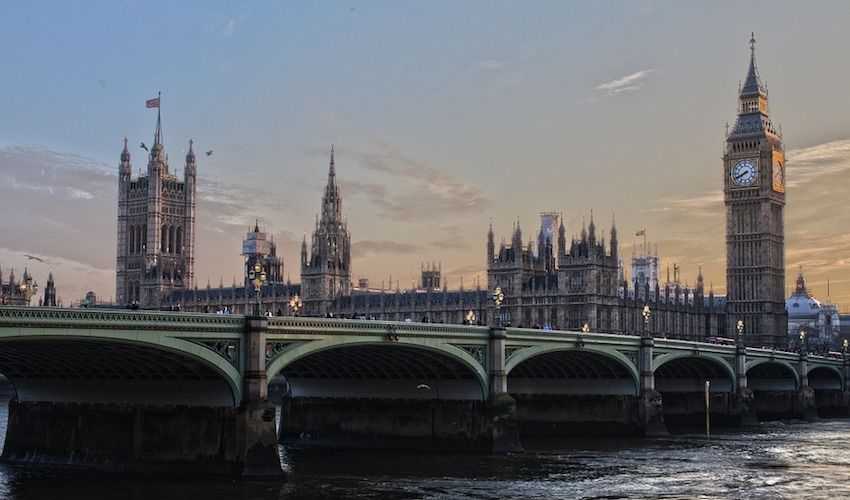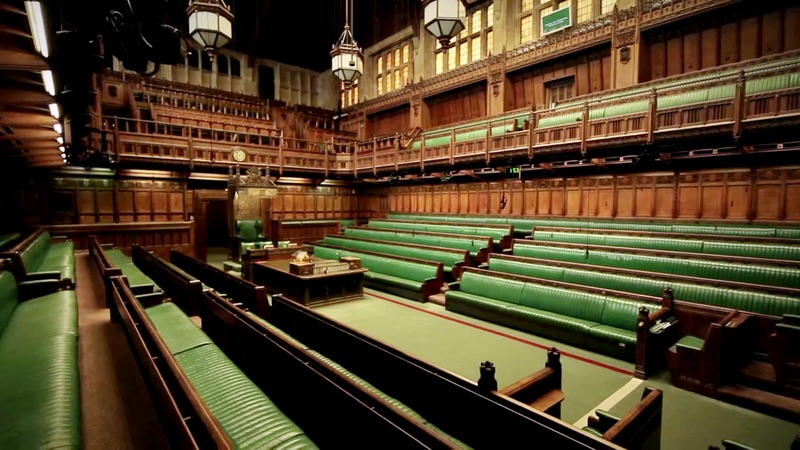

Jersey companies owning land in the UK will have to reveal their true owners to UK authorities if a Westminster 'dirty money' bill gets passed.
They will be caught up in measures intended to address UK government concerns that opaque company structures can be used by criminals to conceal the proceeds of crime through property acquisition.
Last month, a Parliamentary Committee published its response to the Draft Registration of Overseas Entities Bill, strongly endorsing the principle that information about the ownership of overseas companies that own property in the UK should be made fully public.
It came shortly before interest in the bill peaked last week when the High Court froze three offshore company-owned London Homes worth £80million in the second-ever use of an anti-corruption order aiming to uncover the source of the mysterious wealth behind their doors.

Pictured: The UK government wants to unmask the secret owners of expensive homes - many of which are based in affluent areas of London - held by offshore companies.
As much as third of UK property acquired using offshore structures is owned by Channel Island companies, according to a research paper produced by the Department for Business, Energy and Industrial Strategy. The Draft Bill would make it obligatory for such companies to reveal their beneficial ownership – who truly benefits from the assets they own – in future.
However, Joe Moynihan, Chief Executive Officer at Jersey Finance, told Express he is not surprised by the extent of Jersey involvement, adding that the island has nothing to hide.
“Jersey is one of the main jurisdictions that supports commercial property investment in the UK. We have the expertise, the track record and the close working relationship with the City of London to facilitate property investment for international investors,” he said.
He said he did not believe it should be a source of concern to the island that the UK land registry would publish details of overseas-owned property and that it would rather serve to highlight the good quality of Channel Island international investment in the UK property market.
“We are proud of our role in facilitating investment into the UK property market. Offshore property ownership can act as a gateway for further investment in the UK. It creates jobs and boosts the secondary property market, so benefits the UK economy,” Mr Moynihan added.
Jersey Finance was among those who provided written evidence to the Joint Parliamentary Committee established earlier this year to scrutinise the draft bill, which has been described as the ‘Dirty Money Bill’. The promotional body argued that Jersey’s central register of ownership – already accessible by law enforcement agencies – should be regarded as sufficient for the purposes of the proposed legislation.

Pictured: Jersey Finance's CEO said the island was "proud" of how the finance sector facilitates investment into the UK property market.
“Enhanced co-operation arrangements are in place between the UK and Jersey which mean that beneficial ownership information is available on request by law enforcement within 24 hours or one hour where the request is urgent”, the submission said.
However, the view does not find favour in the committee’s report, which argues that, although the bill’s reporting requirements can be modified where there are ‘equivalent’ measures in place, these would not cover the Jersey register.
“We are concerned”, the committee says, “that the meaning of ‘equivalent’… should be closely defined. For true equivalence, we believe that overseas registers should be publicly accessible”.
Though similar in its aims, the scope and significance of the draft bill is distinct from the wider debate about the implementation of the fifth EU Anti Money Laundering Directive, which requires a publicly accessible register of all company beneficial ownership.
The UK government has said that it will implement that directive, irrespective of a possible no-deal Brexit. Jersey’s position has been that its regulatory regime is robust and that it has effective arrangements in place to share information with the UK authorities. Any efforts to impose the requirement against the island’s wishes would raise serious concerns about the constitutional relationship with the UK.
By contrast, the Draft Overseas Entities Bill relates to registry requirements in the UK and would require publication of ownership details only by companies holding property there, or acquiring it in the future. Such investors could choose to place their funds elsewhere if they did not wish to appear on the register.

Pictured: Jersey Finance CEO Joe Moynihan.
A spokesperson for the Jersey Government said that it was a matter for the UK government to bring forward legislation which met its own domestic priorities.
“In this particular case, the UK government has deemed it necessary to understand the ultimate beneficial ownership of UK property assets. Any Jersey companies that own such assets would be expected to co-operate fully with this new legislation, if passed,” the spokesperson said.
Currently 21% of UK property held by overseas entities is held by Jersey-registered companies, making it second only to the British Virgin Islands at 23%. Companies based in Guernsey and the Isle of Man hold 12% and 11% respectively.
The position of trusts under the proposed legislation has been identified as an outstanding issue by the Joint Parliamentary Committee, which expresses the concern that trusts could be used as a loophole by criminals.
“Although the trust would usually be recorded by the Trust Registration Service, this would not be public information”, the committee says, recommending that the government should set out a detailed response to how any such loophole would be closed.
In its submission, Jersey Finance argues that trusts are predominantly used to structure family wealth and that investors would have concerns about personal safety if the personal details of beneficiaries were made public.

Pictured: Once finalised, the bill will have to be passed by UK politicians.
The UK’s Department for Business, Energy and Industrial Strategy will now consider the Joint Parliamentary Committee’s report, published on 20 May, and responses to a public consultation which closed last autumn.
The legislation is unlikely to come into force until 2021.
Comments
Comments on this story express the views of the commentator only, not Bailiwick Publishing. We are unable to guarantee the accuracy of any of those comments.